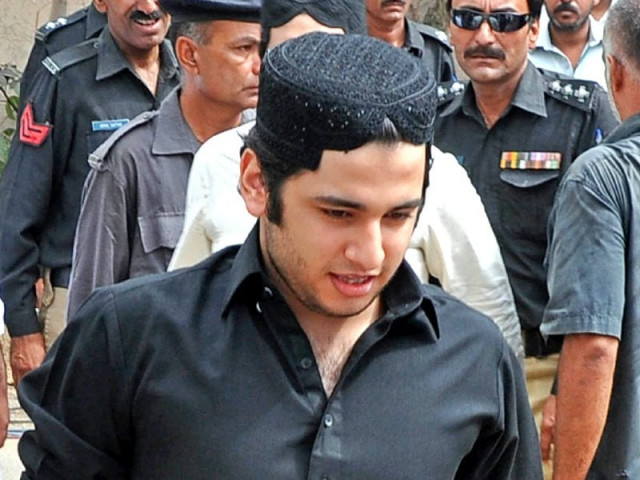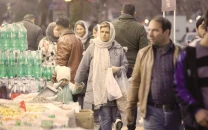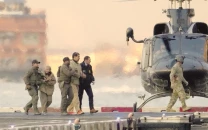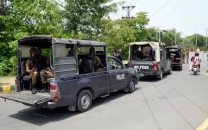Shahzeb murder case: Police arrest Shahrukh Jatoi, two others after SC verdict
SC directed SHC to take up initial plea and announce verdict in two months

Shahrukh Jatoi. PHOTO: ATHAR KHAN/EXPRESS
Following the hearing, the accused were taken into custody by the Islamabad police after the verdict was read out by Chief Justice of Pakistan (CJP) Mian Saqib Nisar.
Interestingly, the three-judge special bench, headed by the CJP and comprising Justice Asif Saeed Khosa and Justice Maqbool Baqir also converted the case into a suo motu.
Shahzeb murder case: SC orders names of Shahrukh Jatoi, three others to be placed on ECL
The bench wondered how the Sindh High Court (SHC) overlooked the Supreme Court’s 2013 decision wherein it was mentioned that the case against Shahrukh Jatoi and co-accused should be conducted before Anti-Terrorism Court. Likewise, it also asked accused’s counsel Latif Khosa that why they did not file a review petition against the apex court at that time.
The apex court ordered SHC to hear an initial appeal of the accused against their death sentence by the trial court and decide the matter in two months.
However, the bench did not pass directions on civil society members’ petition, which was filed under Article 185 of the Constitution.
SC has changed our appeal in #ShahzebKhan csse into SuoMoto, has suspended order of SHC removing terrorism charges from case, nullified their bail & ordered their arrest directing SHC to decide the appeal on merits in two months time. Alhumdulillah. Thank you everyone for support
— M. Jibran Nasir 🇵🇸 (@MJibranNasir) February 1, 2018
During the hearing the chief justice said that the court has the right to ensure complete justice under Article 187 of the Constitution. He also asked whether a settlement could be acceptable in a terrorism case.
During the hearing, Khosa said that his client was subjected to oppression as he was kept in a death cell for five years and was not even allowed to give his examinations. The counsel also raised objections on the entertaining of the civil society’s petition in this matter. Even the chief justice told him that he has a strong case on the locus standi of the petitioner.
Khosa also stated that there are 15 judgments of Justice Khosa, who declared that such incidents do not fall in the category of terrorism
During the hearing the chief justice said that the court has the right to ensure complete justice under Article 187 of the Constitution. He also asked whether a settlement could be acceptable in a terrorism case.
During the hearing, Khosa said that his client was subjected to oppression as he was kept in a death cell for five years and was not even allowed to give his examinations. The counsel also raised objections on the entertaining of the civil society’s petition in this matter. Even the chief justice told him that he has a strong case on the locus standi of the petitioner.
Khosa also stated that there are 15 judgments of Justice Khosa, who declared that such incidents do not fall in the category of terrorism.
SHC orders fresh trial in Shahzeb Khan murder case
The counsel said that if the SC wants then he is willing to argue the case on merit, adding that acquittal of accused persons is sure in this matter, adding that his client has been facing tough charges because he is the son of a rich man.
Khosa said there were multiple instances where the SC removed anti-terrorism act (ATA) sections, to which the chief justice countered that there were also many cases where terrorism sections were added by the apex court. The counsel while referring to the SC’s earlier judgment said that state is bound to facilitate the compromise between parties in such matters.
Attorney General for Pakistan Ashtar Ausaf Ali said the SC's pronouncing the case as terror earlier was binding. After the AG's submissions, the province adopted the federation's viewpoint, which was a surprise for the judges too. The bench then questioned why the Sindh government did not move the petition against the SHC’s order.



















COMMENTS
Comments are moderated and generally will be posted if they are on-topic and not abusive.
For more information, please see our Comments FAQ